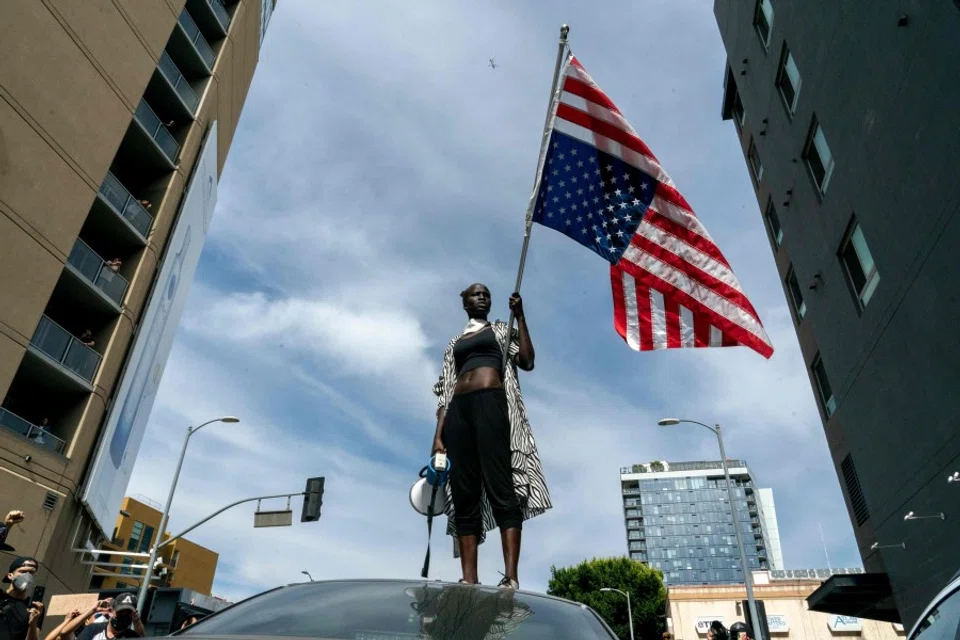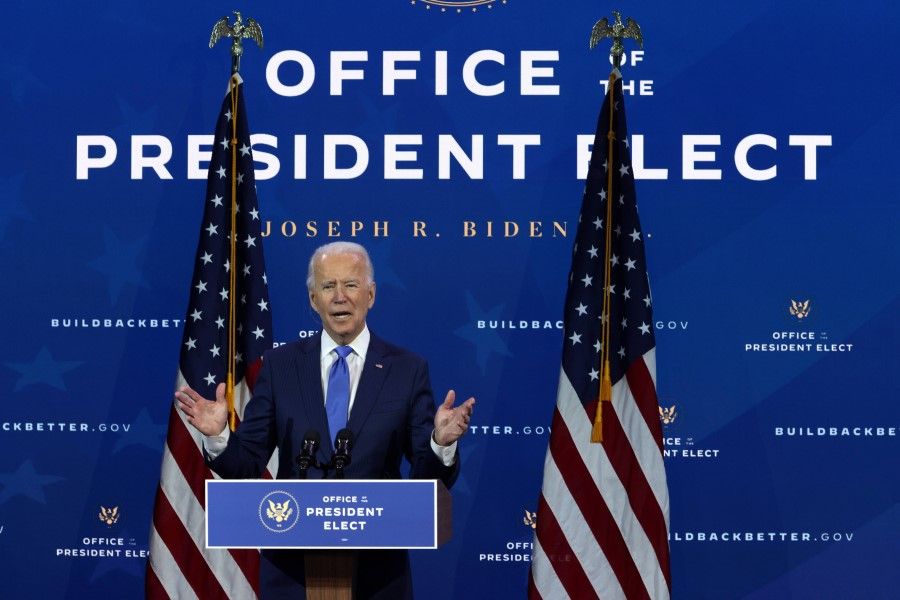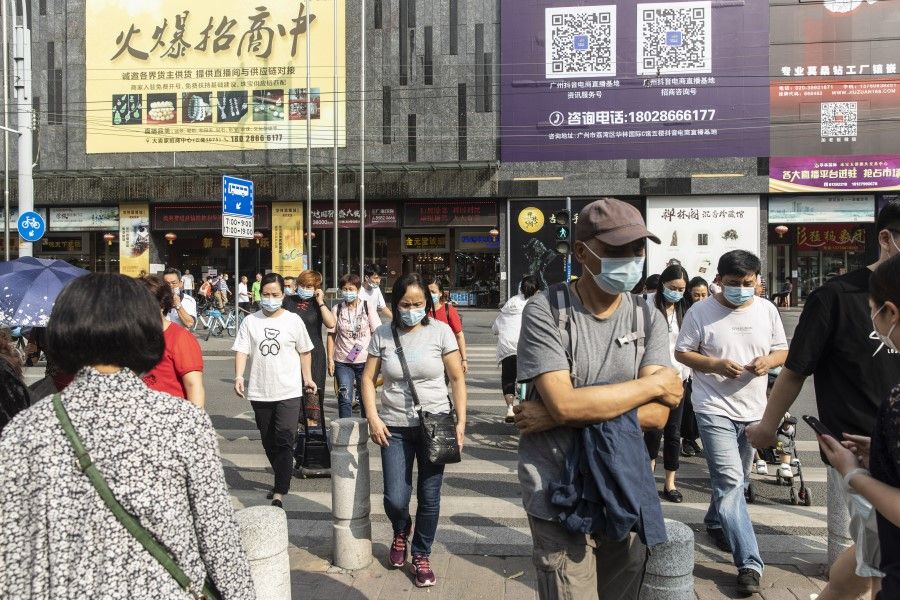Japanese academic: If US diplomacy lacks a strong base, how can it demonstrate true leadership?

Former US Vice President Joe Biden has defeated President Donald Trump and will become the 46th president of the US. After an exceptional political situation where there has been no acknowledgement of defeat from the president, the procedures to prepare for the transition begin.
As we look back at the Trump administration, we notice that it has maintained its "America First" position, has been dismissive of international order and multilateral cooperation, has demanded reciprocity even in negotiations with allies and has sometimes emphasised friendships with the leaders of authoritarian countries.
Accordingly, the world has certain expectations for the new administration. Japan is not unusual in this respect. There are hopes for more predictability and also a desire that international society not be disturbed by the US domestic political situation. But will the Biden administration actually bring back the American policy and diplomacy of four years ago? If so, will Asia and the rest of the world openly welcome it?
Above all, the new administration faces a dire situation. We must not forget the fact that the outcome of the election was not a total victory for the Democratic Party, nor a total defeat for the Republican Party. Two senate seats are headed for run-offs in the state of Georgia in January, with the Republicans having secured half of the seats in the US Senate. The Democrats maintained their majority in the House of Representatives. The power of the Democratic Party's left wing grew, but the party lost a significant number of seats. Support for the Republican Party remained strong, and it is known that the party has gained more acceptance among Hispanics and Asian Americans. This means that the deep divisions in American society have not changed, and that the new administration has a weak base.
The Biden administration has already begun to announce some of its senior officials. However, a conflict between the measures addressing the left wing of the Democratic Party and the measures addressing Congress is predicted. The Biden administration will set sail with challenges both in terms of reconciliation within the Democratic Party and measures for dealing with Congress.
Bearing in mind the high-handed policies that China has clearly adopted both domestically and abroad, and that the public sentiment regarding China in the US is strong, it is inconceivable that US-China relations will return to where they were four years ago.

On the diplomatic front, will the Biden administration be able to demonstrate leadership? In Washington now, a number of events are being held under catchphrases such as "Welcome back, America". From just the fact that, at the start, many of the staff of the Biden administration worked in the Obama administration, it is safe to say that the new administration aims to return to Obama diplomacy and will be characterised by its emphasis on international cooperation and alliances.
The Democratic Party's typical attitude toward diplomacy is the embracing of visions of soaring to new heights and realizing these visions through actions based on laws, norms and diplomacy. The US returning to the Paris Agreement for climate action and to the WHO will have symbolic significance. There is no doubt that the US will emphasise salvaging its relationships with European countries and that there will be a marked increase of its intransigence toward Russia.
In its policies regarding China, the US will surely maintain the strong stance it has taken over the last several years, but will likely pursue a policy that differs from the Trump administration in terms of practical strategy. Bearing in mind the high-handed policies that China has clearly adopted both domestically and abroad, and that the public sentiment regarding China in the US is strong, it is inconceivable that US-China relations will return to where they were four years ago. Considering the necessity of obtaining the approval of the Senate for high positions within the administration, the new administration will likely continue its hardline policies on China for a while. From an economic security perspective, exports of semiconductors and other advanced technology to China will continue to be strictly controlled. Moreover, the new administration will probably ask its own country and countries around the world to develop information and telecommunications networks that do not use products made in China. It will likely take a strong stance on human rights and democracy.
By using tariff reduction as an inducement, it will probably exert pressures on China.
However, the Biden administration will take both philosophy and national self-interest into consideration in its diplomacy, making it difficult to impose a simple perspective on the administration. As a result, its diplomatic negotiations with China and the rest of Asia will be based on a mix of confrontational and cooperative attitudes.

As domestic job creation has already become the most important issue in the US economy, in addition to post-coronavirus economic policy, the Biden administration will strengthen the US' protectionist tendencies in the future. It will not hesitate to force foreign countries to open up to the international market or provide domestic subsidies. Looking at both the Democrats in Congress and the Republican Party, it is difficult to imagine the US returning to the TPP (now CPTPP). Also, job creation is key to important controversial issues, such as energy policy and supply chain restructuring. It is likely that extremely inward-looking policy will be concealed underneath the political rhetoric of foreign policy. It would be unsurprising if the new administration were to begin its dialogue with China with an eye on opening the market. In that case, tariffs on Chinese products will be a weapon for the Biden administration. By using tariff reduction as an inducement, it will probably exert pressures on China.
The US will likely demand high-level cooperation from Japan in regional security, which involves issues such as the rise of China and North Korea, climate change, human rights, the deterioration of democracy and other global issues.
The Biden administration will undoubtedly emphasise its alliance with Japan in Asia. However, the actions of the US during the Obama administration have already caused the world to form the perception that the US lacks the power to single-handedly police the world. During a Democratic administration, Japan's role is large. The US will likely demand high-level cooperation from Japan in regional security, which involves issues such as the rise of China and North Korea, climate change, human rights, the deterioration of democracy and other global issues. Japan is handling economic security relatively well, while in the field of support for human rights and democratisation, there are differences in the policy priorities of Japan and the US, as well as in the forms of their relevant laws and policies. The most important point is that the government of Japan, led by the Liberal Democratic Party, has consistently advocated certain lines of policy which cannot be simply revised, even after a change of administrations in the US.
Although it may be good to enjoy the defeat of President Trump, the Biden administration will soon be aware that US diplomacy lacks a strong base, considering the severe political situation in the country. It is also premature to say that a denial of Trump diplomacy would please the world. From this position, to encourage the world to make progress toward freedom and liberalisation, the new administration is urged to stay informed of international political developments, avoid preachy diplomacy, enlarge its vision, work hard and demonstrate true leadership.
